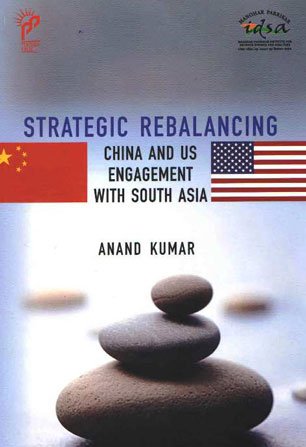How will India Respond to Civil War in Pakistan?
In 1971, India intervened militarily on behalf of Bengalis in the civil war in East Pakistan, dividing the country into two. The prospect of another civil war in Pakistan pitting radical Islamists against the secular but authoritarian military raises questions about the possibility, timing, objective, and nature of another Indian intervention.
Future of Golden BRICS
With the successful holding of the fifth summit of Brazil, Russia, India, China and South Africa (BRICS) in Durban during March 26–27, 2013, this influential group of emerging economies completed its first important phase of genesis and evolution. The idea was floated in 2001 as an ‘acronym’ created by an investment banker of Goldman Sachs, Jim O'Neil who believed that the fast-growing economies of Brazil, Russia, China and India would be the single greatest game changers in coming times.
Partition of History in Textbooks in Pakistan: Implications of Selective Memory and Forgetting
This article seeks to study the post-partition and especially post-1971 experimentation with history writing in Pakistan and focuses on how the revisiting of the partition has led to a reinvention of history by the selective contraction, misinterpretation and even omission of certain periods believed to be detrimental to the process of nation building in Pakistan. The article seeks to selectively apply the Hegelian approach and make a case for a common history, which it is hoped will facilitate better relations and greater mutual understanding between the nations of the sub-continent.
Impact of West Bengal Politics on India–Bangladesh Relations
It was expected that Prime Minister Manmohan Singh's visit to Dhaka in September 2011 would transform India–Bangladesh relations. However, this did not happen as India could not sign the Teesta water sharing agreement, the biggest deliverable of the visit. It also made some people brand West Bengal (Paschimbanga) Chief Minister Mamata Banerjee as a spoiler.
Can Robust Bilateral Cooperation on Common Rivers between Bangladesh and India Enhance Multilateral Cooperation on Water Security in South Asia?
The Himalayan river system, which is made up of the Ganges, Brahmaputra and Meghna rivers, has a combined drainage area that covers the countries of China, India, Nepal, Bhutan and Bangladesh. The basin of the Indus river, which originates in the Tibetan plateau, is the lifeline of regions in China, Pakistan, India and Afghanistan.
Nepal–India Cooperation in River Water Management
There is a perception in certain quarters that Nepal was not given due share in the three major water deals between Nepal and India, namely the Kosi Agreement, the Gandak Treaty and the Mahakali Treaty. However, these projects were found to be mutually advantageous to both Nepal and India. If there was any shortcoming in the Kosi Agreement or the Gandak Treaty, it was due to the lack of experience on the part of India. As and when the need was felt, India reciprocated the Nepalese sentiments by way of making revisions in the treaty/agreement.
AN ANTI-TALIBAN PASHTUN PERSPECTIVE ON THE TALIBAN
An old African proverb—‘Until lions have their historians, tales of the hunt shall always glorify the hunter’—comes to mind after reading Farhat Taj's combative, if also compelling, and to an extent controversial, description of what is actually happening on ground zero of the War on Terror, i.e. the Pashtun-dominated belt of the Afpak region. Often enough, the dominant narrative of any war drowns the voices of those living through and dying in the conflict. This is precisely what has happened in the Pashtun-populated areas that lie in the eye of the Islamist storm.
Bhutan–India Power Cooperation: Benefits Beyond Bilateralism
The article argues that as India and Bhutan have moved into the second phase of power cooperation, it is important that the two countries revisit their policies and identify approaches that will be sustainable in the long term. The article emphasises that a sub-regional energy grid between Bhutan, India and Bangladesh can become an effective conduit for strengthening sub-regional diplomacy and help in addressing the latent but underlying concerns of Bhutan, which have the potential to impact India–Bhutan bilateral relations in the long term.
Bangladesh–India Relations, Challenges and Prospects
The relations between Bangladesh and India are important and have a strong historic basis. The prospects for these relations to grow in strength are indeed enormous if they are pursued for mutual benefit and with mutual respect. Our geographical proximity, cultural affinity and shared history should form the parameters of our relations.
















